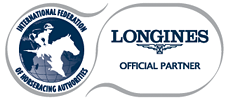To increase harmonization of the international regulations of prohibited substances in horse racing, the International Federation of Horse Racing Authorities (IFHA) Advisory Council on Prohibited Substances and representatives of the Racing Medication and Testing Consortium (RMTC) met in Lexington, Ky., on April 19 and 20. The meetings were held in conjunction with the 75th Annual Convention of the Association of Racing Commissioners International and were sponsored by The Jockey Club.
Official experts from Australia, England, France, Hong Kong, Ireland and the United States discussed the development of common definitions of prohibited substances and therapeutic medications, implementation of international screening limits, and strategies to achieve international harmonization of drug testing rules and regulations. The meeting was chaired by Dr. Ed Houghton, chair of the IFHA Advisory Council on Prohibited Substances.
RMTC Executive Director Dr. Scot Waterman presented an update on the RMTC’s drug testing initiative, which is developing standards for laboratory best practices, quality assurance, proficiency testing, accreditation, and oversight, according to international criteria. The members of the committee offered a number of constructive recommendations regarding the development and certification of accredited laboratories and will continue to assist the RMTC effort going forward.
Denis Egan, Irish Turf Club CEO, European Horseracing Scientific Liaison Committee (EHSLC) chairman and a member of the IFHA Executive Council, discussed this group’s efforts to harmonize the screening limits in Europe.
“This was one of the most important meetings held on this subject in recent years, and considerable progress was made,” said Egan. “The momentum generated as a result of this meeting will continue, and the discussions have paved the way for greater cooperation between all parties, which is for the good of racing throughout the world.”
Dr. Rick Arthur, the California Horse Racing Board’s equine medical director and the U.S. representative on the IFHA Advisory Council, reviewed the differences and similarities in the use of therapeutic medication in the U.S. and major racing nations around the world.
“The opportunity for international cooperation in horse racing has never been better,” said Arthur. “Neither furosemide nor non-steroidal anti-inflammatory drugs are permitted under international rules; but otherwise our differences are largely semantic and appear solvable. On a very positive note, we agreed to cooperate on a number of drug detection studies underway for therapeutic medications in the U.S., Europe, Africa and Australia to maximize scarce resources.”
Meeting participants agreed to stay in close contact and meet by conference call every 100 days. Dr. Scot Waterman will attend the EHSLC meeting in Newmarket in July; Dr. Ted Hill, The Jockey Club steward at NYRA, will also be in Newmarket in July for an IFHA Committee on Harmonization of International Rules of Racing; and Dr. Rick Arthur will attend the IFHA Conference in Paris in October. Additionally, negotiations are underway for U.S. representatives to host the International Conference of Racing Analysts and Veterinarians in 2012.
The RMTC consists of 25 racing industry stakeholders and organizations that represent Thoroughbred, Standardbred, American Quarter Horse and Arabian racing. The organization works to develop, promote and coordinate, at the national level, policies, research and educational programs that seek to ensure the fairness and integrity of racing, the health and welfare of racehorses and participants, and to protect the interests of the racing public.
The EHSLC’s main aims:
Harmonize technical doping control policies and procedures
Engender co-operation among the member countries in research underlying the suppression of doping
Provide a forum for the exchange of information
Provide for unification of views on matters concerning doping control so that the member countries may speak with one voice in the worldwide arena
The IFHA Advisory Council on Prohibited Substances’ terms of reference:
Advise on the rules governing doping control
Provide recommendations on standards of testing and standards of research
Promote ways of achieving international consistency in these areas
Provide other veterinary and scientific advice for improving the integrity of racing
Stimulate and coordinate relevant research and development in the laboratories of member countries of the IFHA
Attend to any requests from the IFHA
Advise racing authorities of member countries as requested by the IFHA
Liaise with the member of the IFHA executive council in charge of regulatory matters
For additional information, visit the RMTC website at www.rmtcnet.com or contact Hallie Roach, RMTC director of communications, at (859) 224-2848.
|



